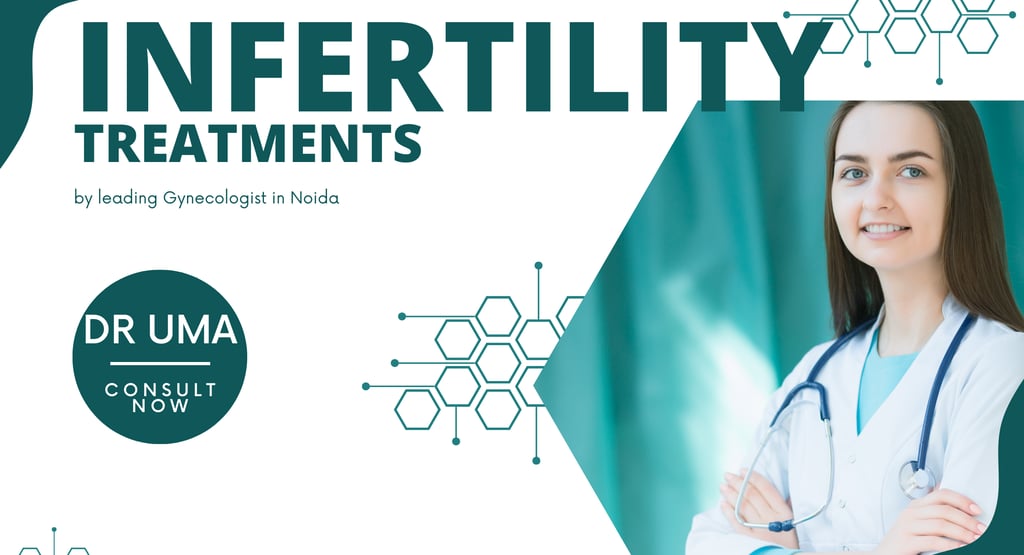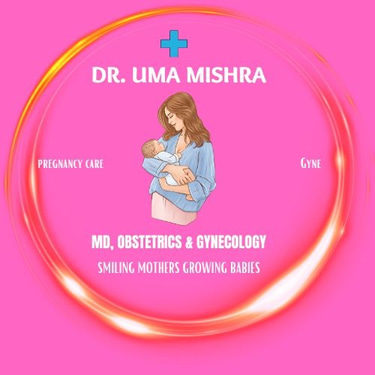Fertility concerns in men and women explained by Gynecologist Dr Uma Mishra
Infertility in men and women are common now a days with increased age of parenting, stress and various other factors. Various types of infertility is explained by leading gynecologist of Noida, Dr Uma MIshra
Dr Uma Mishra
2/8/20242 মিনিট পড়ুন


Fertility issues can affect both men and women, and there are various factors that can contribute to difficulties in conceiving. Some common issues include:
In Women:
Ovulatory Disorders: Irregular or absent ovulation can lead to infertility.
Polycystic Ovary Syndrome (PCOS): A hormonal disorder that can cause irregular periods and ovulation.
Uterine or Tubal Factors: Structural abnormalities in the uterus or fallopian tubes can hinder conception.
Endometriosis: The presence of endometrial tissue outside the uterus can affect fertility.
Age-related Decline in Egg Quality: Fertility decreases with age, and the quality of eggs may decline.
In Men:
Sperm Disorders: Issues with sperm production, motility, or morphology can impact fertility.
Varicocele: Enlarged veins in the scrotum may affect sperm production.
Erectile Dysfunction or Ejaculation Disorders: Difficulties in achieving or maintaining an erection or ejaculating can contribute to male infertility.
Diagnostic Tests:
Female Diagnostic Tests:
Ovulation Tracking: Monitoring menstrual cycles and ovulation.
Hormone Tests: Assessing levels of hormones like FSH, LH, estradiol, and progesterone.
Hysterosalpingography (HSG): Imaging test to evaluate the uterus and fallopian tubes.
Transvaginal Ultrasound: Examining the reproductive organs.
Male Diagnostic Tests:
Semen Analysis: Assessing sperm count, motility, and morphology.
Hormone Testing: Checking levels of testosterone and other relevant hormones.
Scrotal Ultrasound: Imaging to identify issues like varicoceles.
Latest Developments:
Advancements in Genetic Testing: Pre-implantation genetic testing (PGT) allows screening of embryos for genetic abnormalities before implantation.
Innovations in Egg and Sperm Freezing: Improvements in cryopreservation techniques enhance the success of preserving fertility.
Ovarian Reserve Testing: Newer tests help evaluate a woman's ovarian reserve and potential response to fertility treatments.
ACOG Guidelines: The American College of Obstetricians and Gynecologists (ACOG) provides guidelines for the evaluation and treatment of infertility. These guidelines emphasize a comprehensive approach, including history-taking, physical examination, and appropriate diagnostic tests for both partners. Timely referral to a fertility specialist is recommended when necessary.
IVF Recommendation: In vitro fertilization (IVF) is often recommended when other fertility treatments have not been successful. ACOG suggests considering IVF in cases of tubal factor infertility, severe male factor infertility, and unexplained infertility after appropriate evaluation and treatment.
It's important to note that individual cases may vary, and recommendations should be tailored to the specific circumstances of each couple. Consulting with a reproductive endocrinologist or fertility specialist is crucial for personalized advice and treatment planning. Additionally, staying informed about the latest developments in reproductive medicine is beneficial for both healthcare providers and individuals seeking fertility assistance.
Dr Uma Mishra, MD is a gynecologist who specializes in treatment of infertility in couples. With her medical advise hundreds of couple affected by infertility have conceived. Consult Today.
